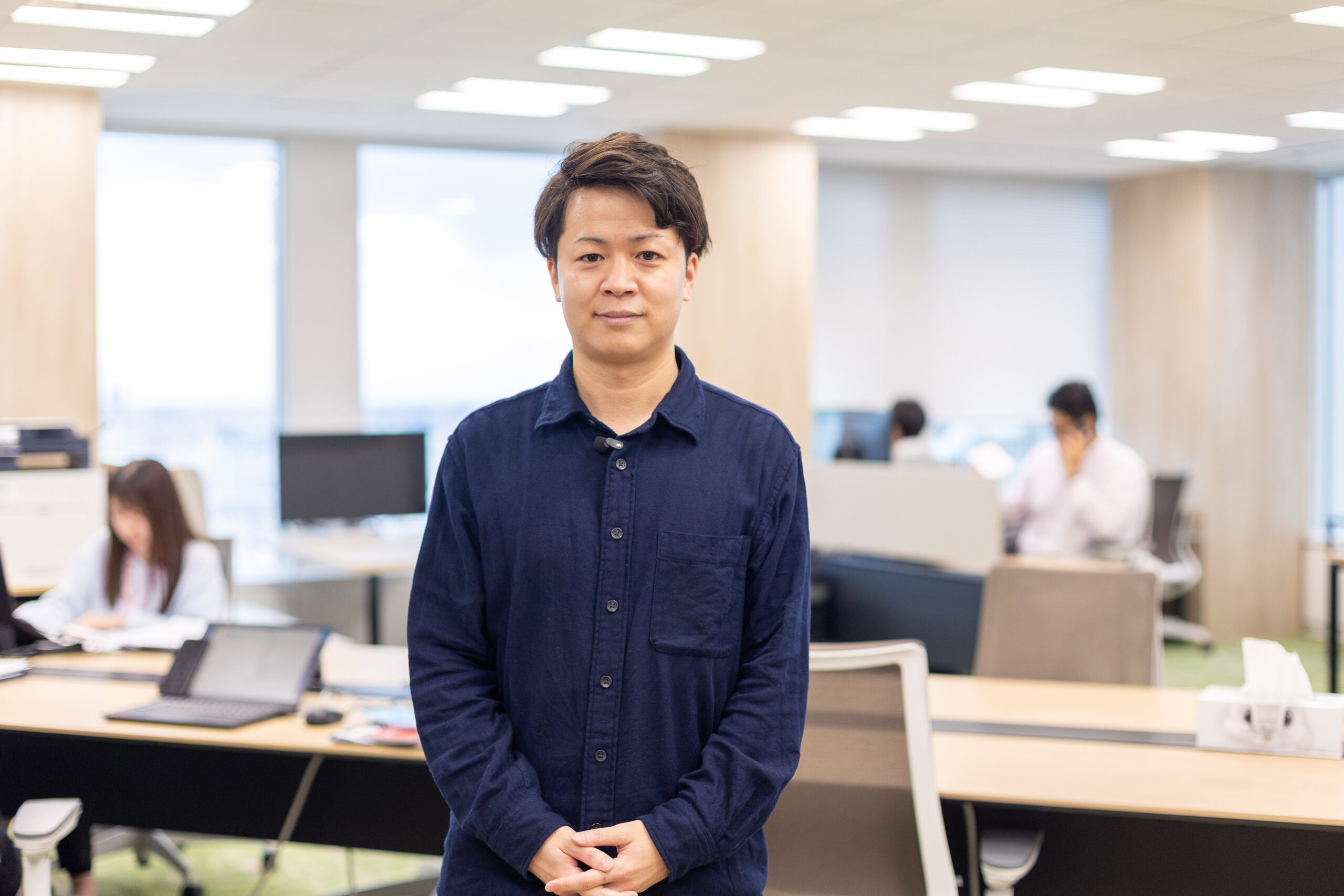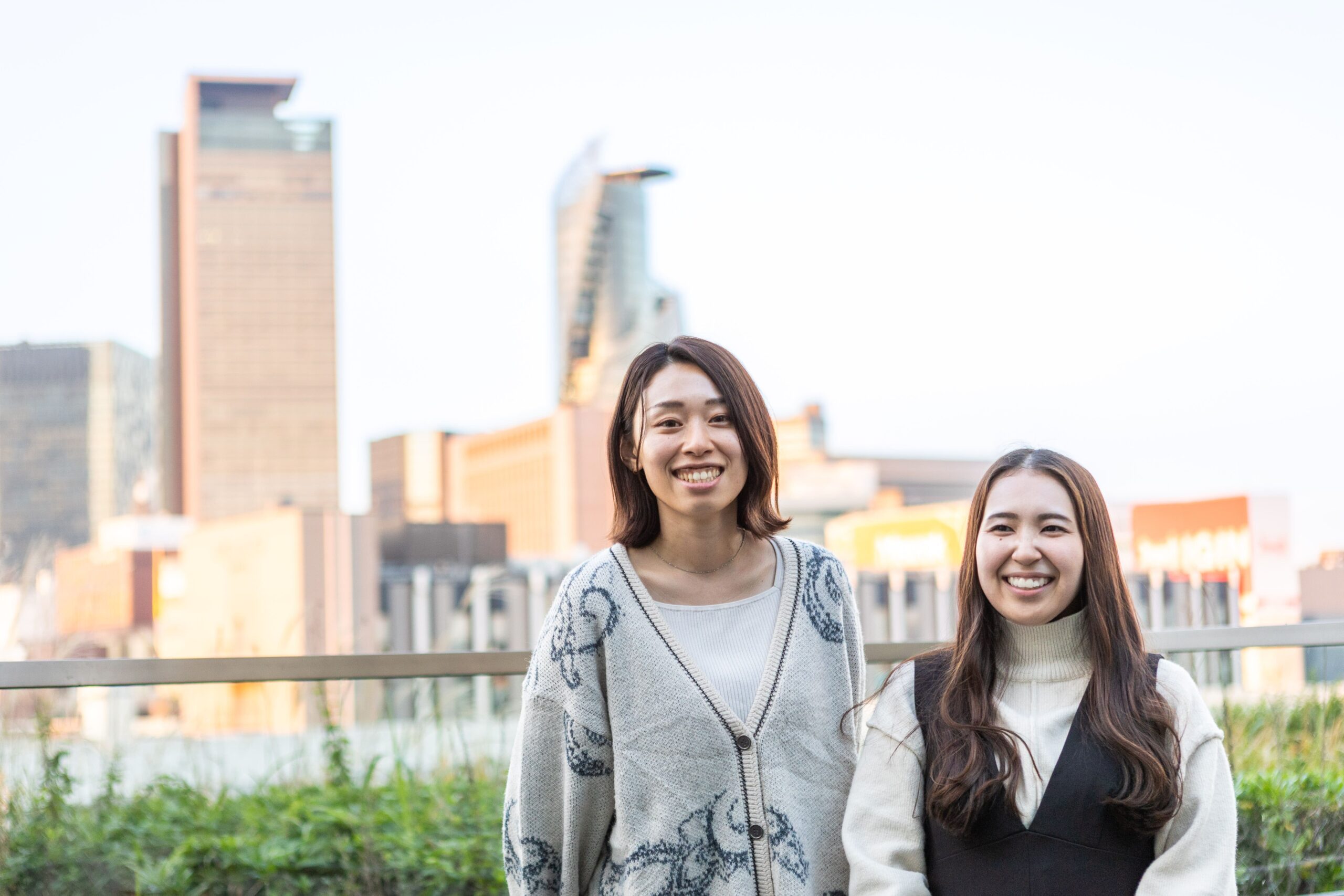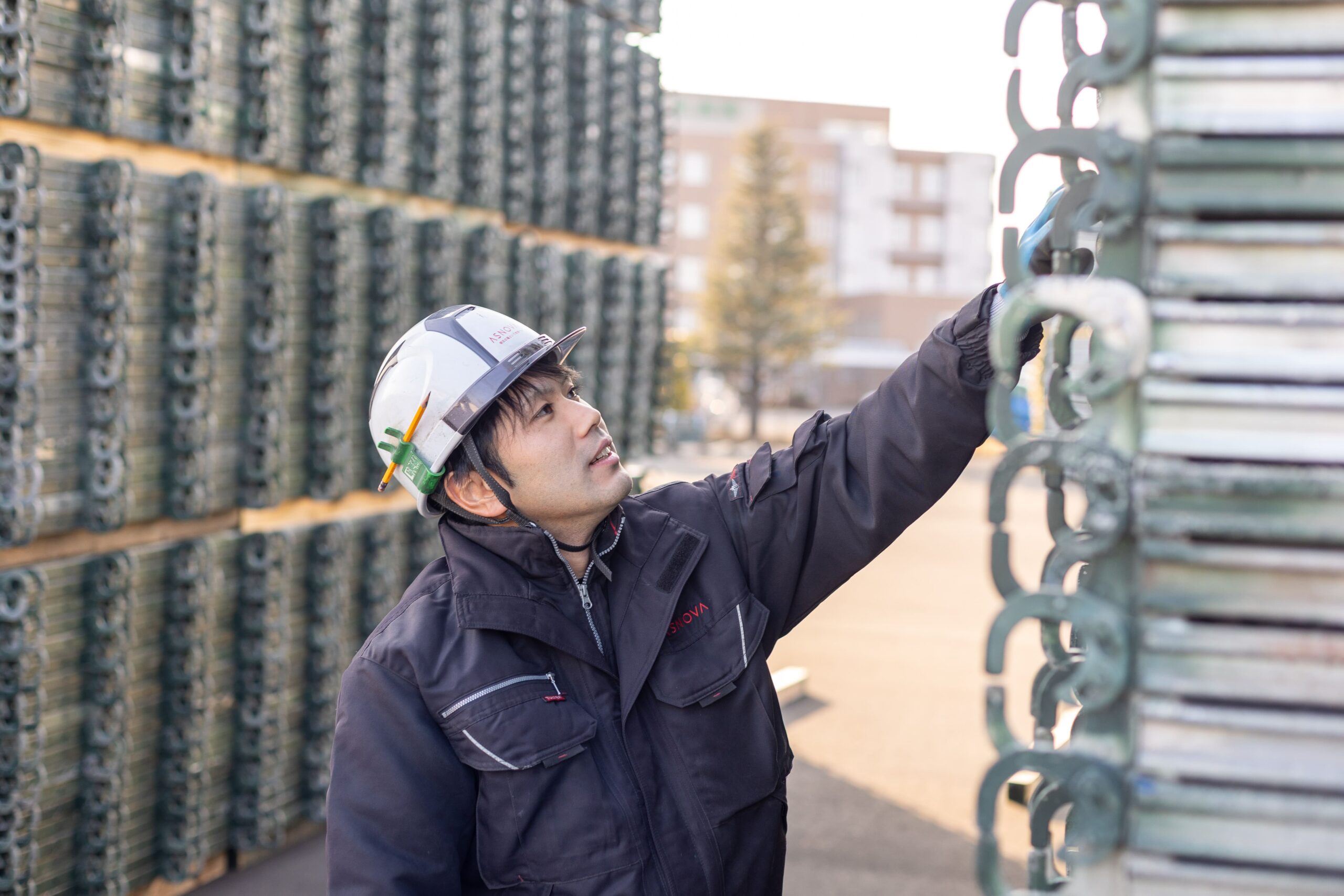





福島県初・40拠点目となる「福島本宮センター」。インフラベースとしての足場の可能性
- インフラ
- センター長
- 機材センター
- 福島県
- 関東



IR
Text:光田 さやか
Photo:小林 翔
PROIFILE
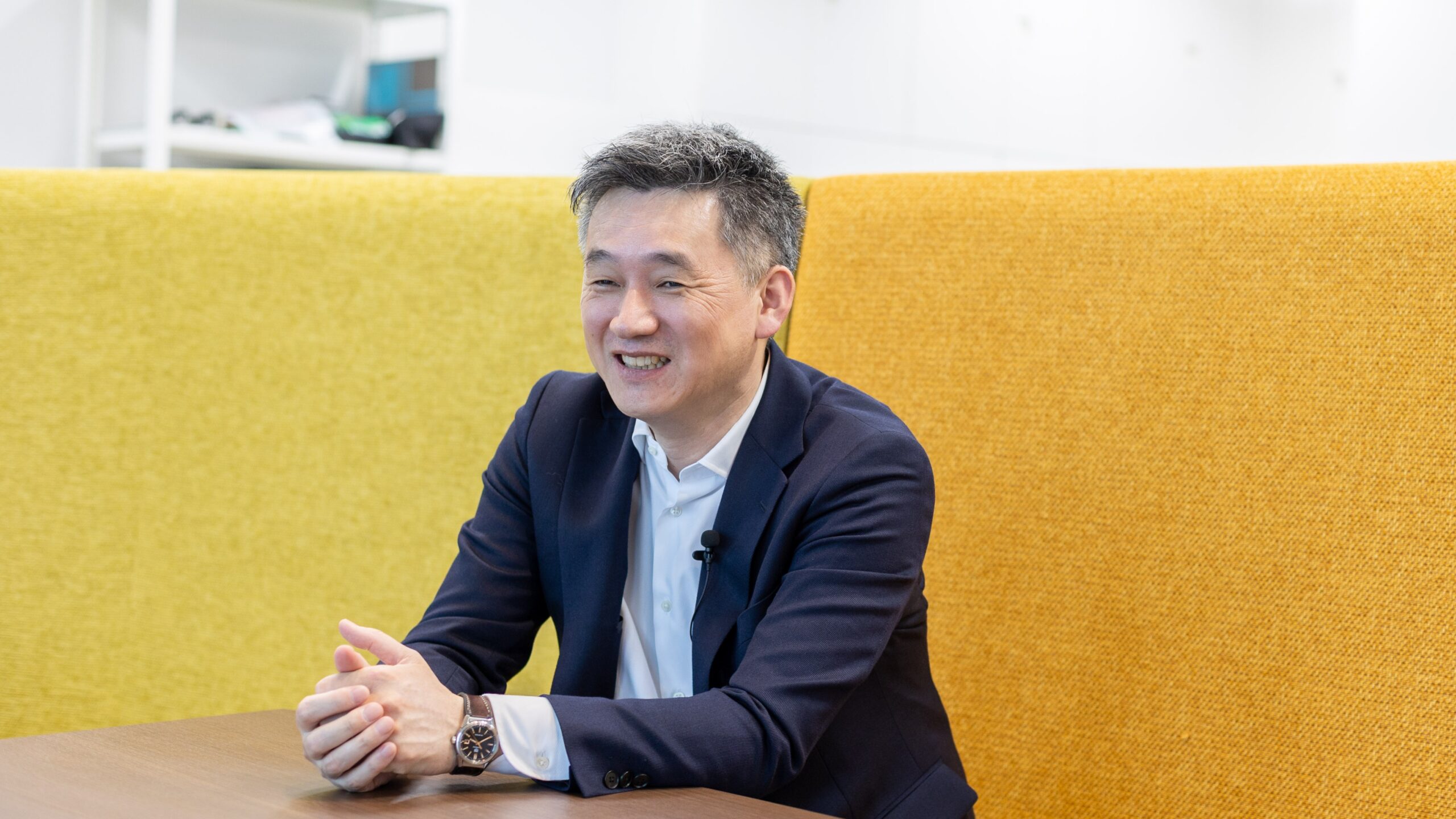
2025年、ASNOVAは初となるM&Aを、シンガポールの仮設トイレレンタル企業「Qool社」と締結。グループ化の裏には、循環型ビジネスを見据えた明確な成長戦略がありました。
今回、日本M&Aセンターの竹葉聖 部長とASNOVAの上田桂司 社長の特別対談が実現。M&Aの狙いや意思決定の舞台裏、クロスボーダーM&Aならではの手応えについてじっくりと語り合いました。
Text:光田 さやか
Photo:小林 翔
PROFILE
竹葉:ASNOVAは2013年の12月に設立以来、約10年にわたって足場のレンタルという事業を展開されてきましたね。そもそも、そこにはどのようなきっかけがあったのでしょうか。
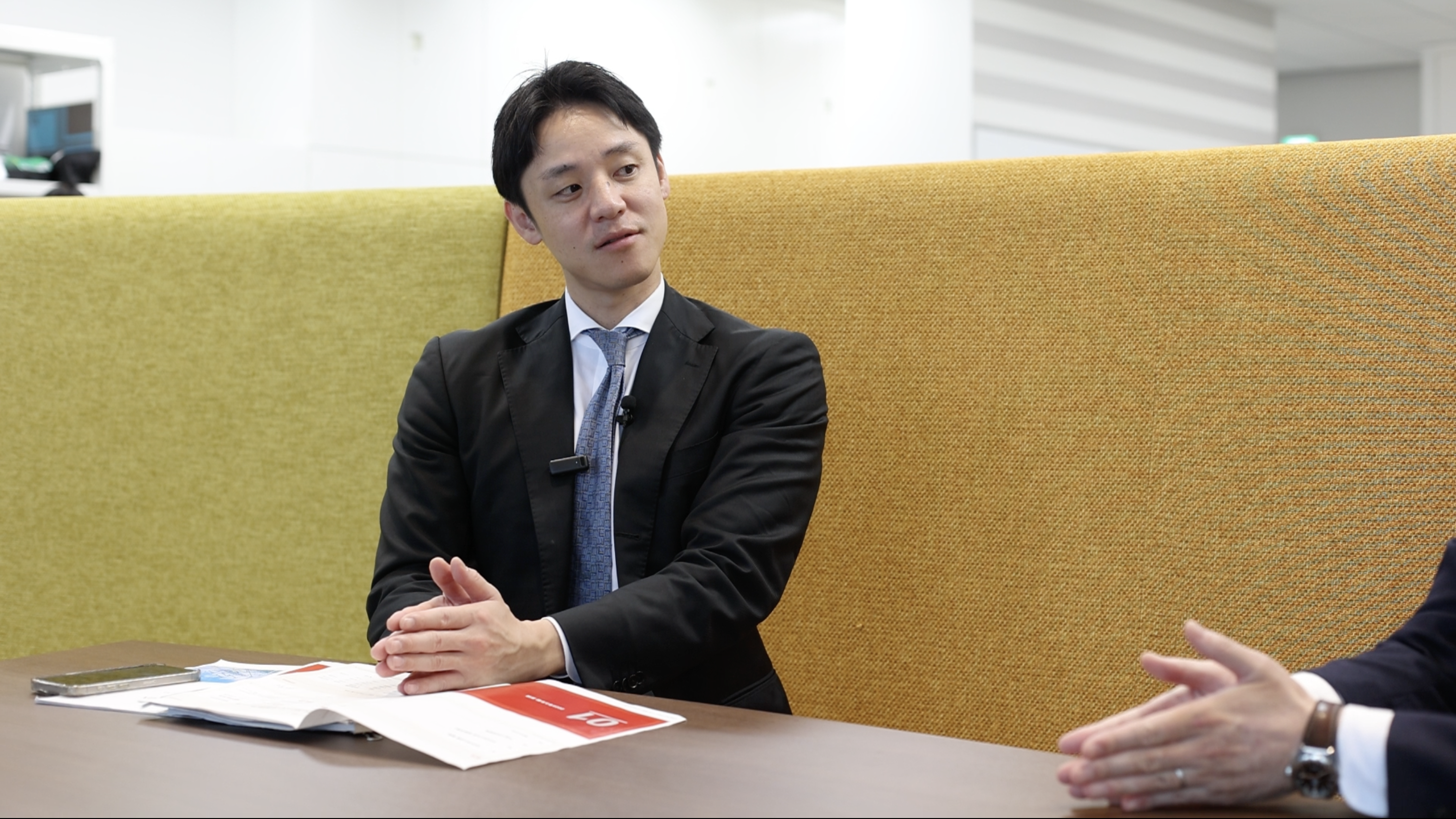
上田:当社が扱っているのは「くさび式足場」と呼ばれるものです。低層住宅の工事や老朽化対策工事で使われることが多いですね。また、最近では自然災害も増えていますので、災害対策や災害復旧という場面でも足場は必要とされています。とてもニッチな市場ではありますが、毎年お客様も300〜400社くらいは増えていますし、まだまだニーズはあると思っています。
事業フローは、いたってシンプルです。足場をメーカーから仕入れて、それを足場業者様に貸し出します。物件のリフォームや工事の案件が発生すると、リフォーム業者様から足場業者様に依頼があります。ですが足場業者様の多くは自社で足場を一部しか保有していないので、必要な分だけを弊社にレンタルしにくる、という流れです。我々も、より多くの足場を保有するために、エリア戦略を考えながら機材センターを増やしていきました。
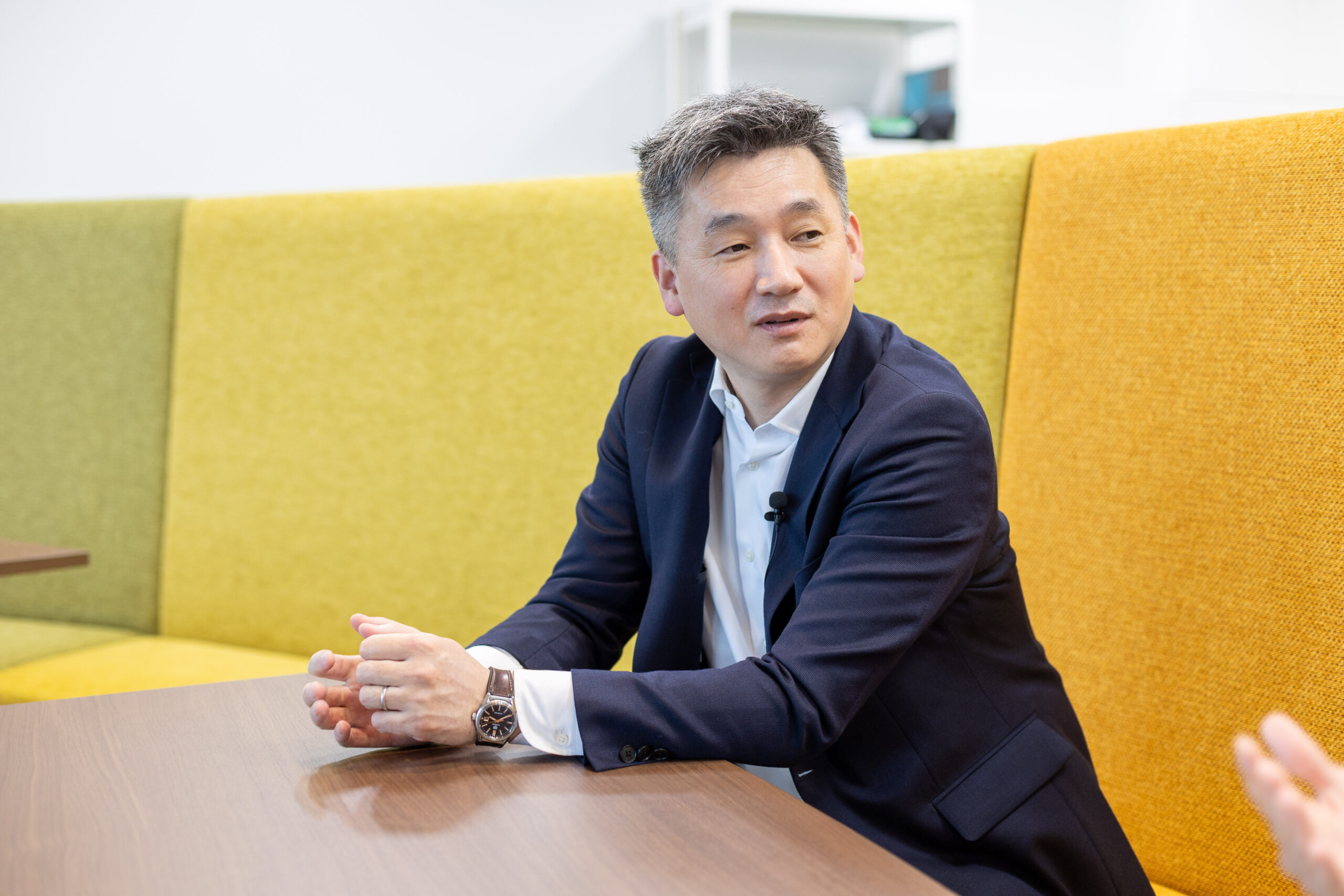
竹葉:そんななか、今回M&Aをされましたね。初めてのM&Aで、しかもシンガポールの企業ですが、どのような経緯でそこに至ったのでしょうか?
上田:まず私の中で、「足場レンタル」という事業は10年くらいで一区切りを迎える感覚だったんです。ありがたいことに、先にも述べたように需要はあるのですが、そうするとどんどん資材を増やし続けなくてはいけなくなるし、それに合わせて機材センターの出店も必要になってくる。1事業で10年ほど大きな投資をしたら、それを超える10年からは1つの事業だけに投資をしないという私の中のポリシーがあったんです。
そう思うと、この10年の足場レンタル事業はとてもいい具合に伸び続けてきたので、次の事業に踏み出すなら今が一番いいかなと思いました。
また、私たちは、足場レンタルをただ事業として行うだけでなく「循環型社会の実現」という視点でも考えています。つまり、大量生産、大量消費のサイクルから抜け出し、循環型社会に貢献できるビジネスモデルを作り出していかなくてはいけない。その一つがM&Aだったんです。
どんな企業がいいかと考えたときに、やはりASNOVAの強みであるレンタル事業に絞りたいと考えました。国内の売却企業にはすでにいろいろな企業が親会社として参入していたので、国内ではなく海外に目を向けてみようと思い、シンガポールに注目しました。
ASEANは、国土面積が日本の約12倍、人口は約5倍、GDPはなんと9割にもなり、もうすぐ日本を超えようとしています。とても興味深い市場だなと感じました。とくにシンガポールは日本からのアクセスも良く、今後ASEANを見据えた時にビジネスのハブになっていく国かなと思ったんです。
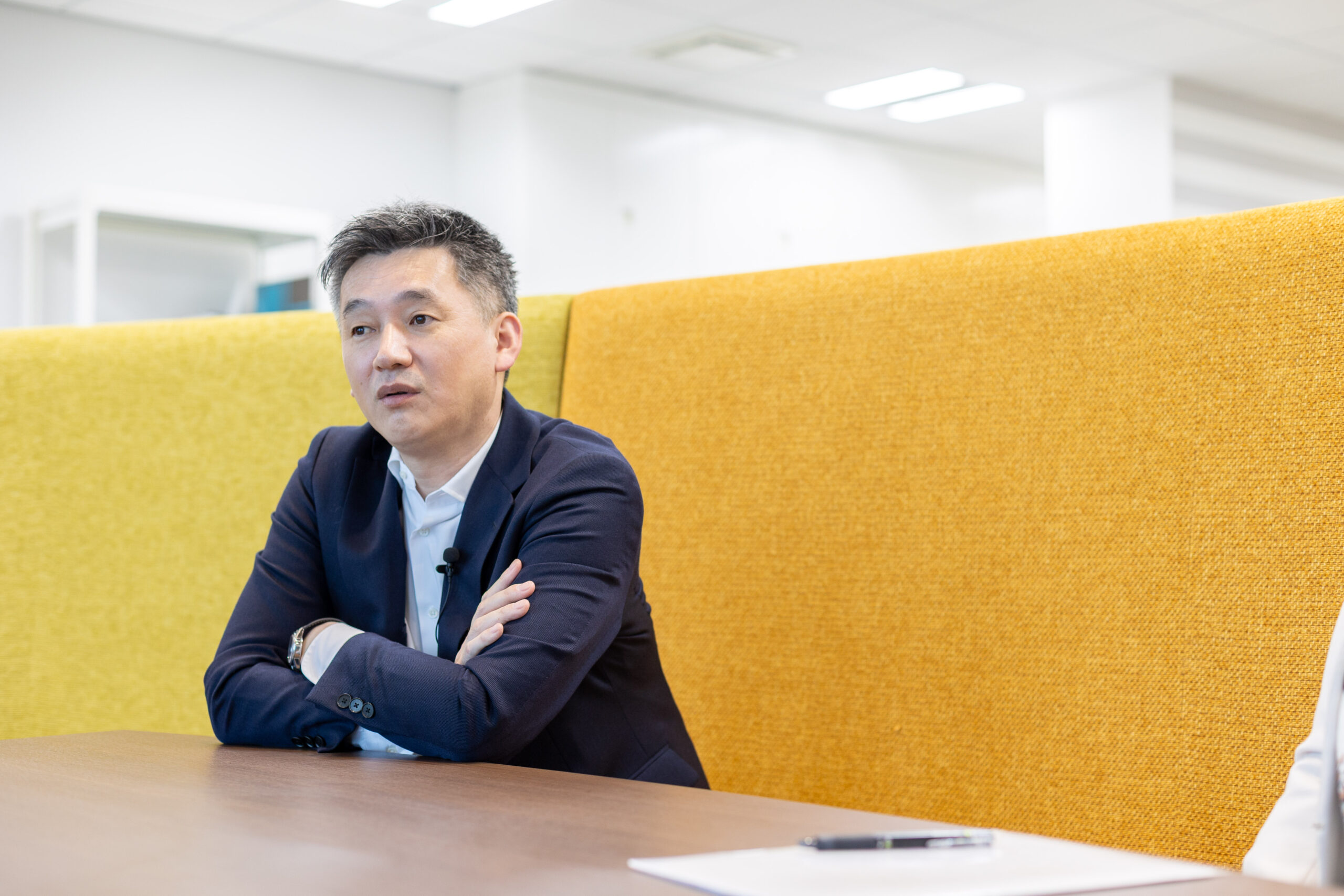
竹葉:そのときに、我々がご紹介したのがQool社ですね。
上田:はい。トイレのレンタル事業と聞いたとき、正直最初はピンと来なかったんです。でも財務諸表を見たら、「これはすごい」と。トイレも足場と一緒で償却年数は5年で、古いものは16年以上使っているそうなんです。償却済みのトイレが、毎月安定したキャッシュを生み出しているということです。足場レンタルと同じ構造で、自分たちの経験が活かせるという点に魅力を感じました。
竹葉:海外M&Aと聞くと、普通は「言語の壁」「文化の違い」「PMIの困難さ」が大きなハードルになるのですが、御社の場合はかなりスムーズに進んだ印象です。
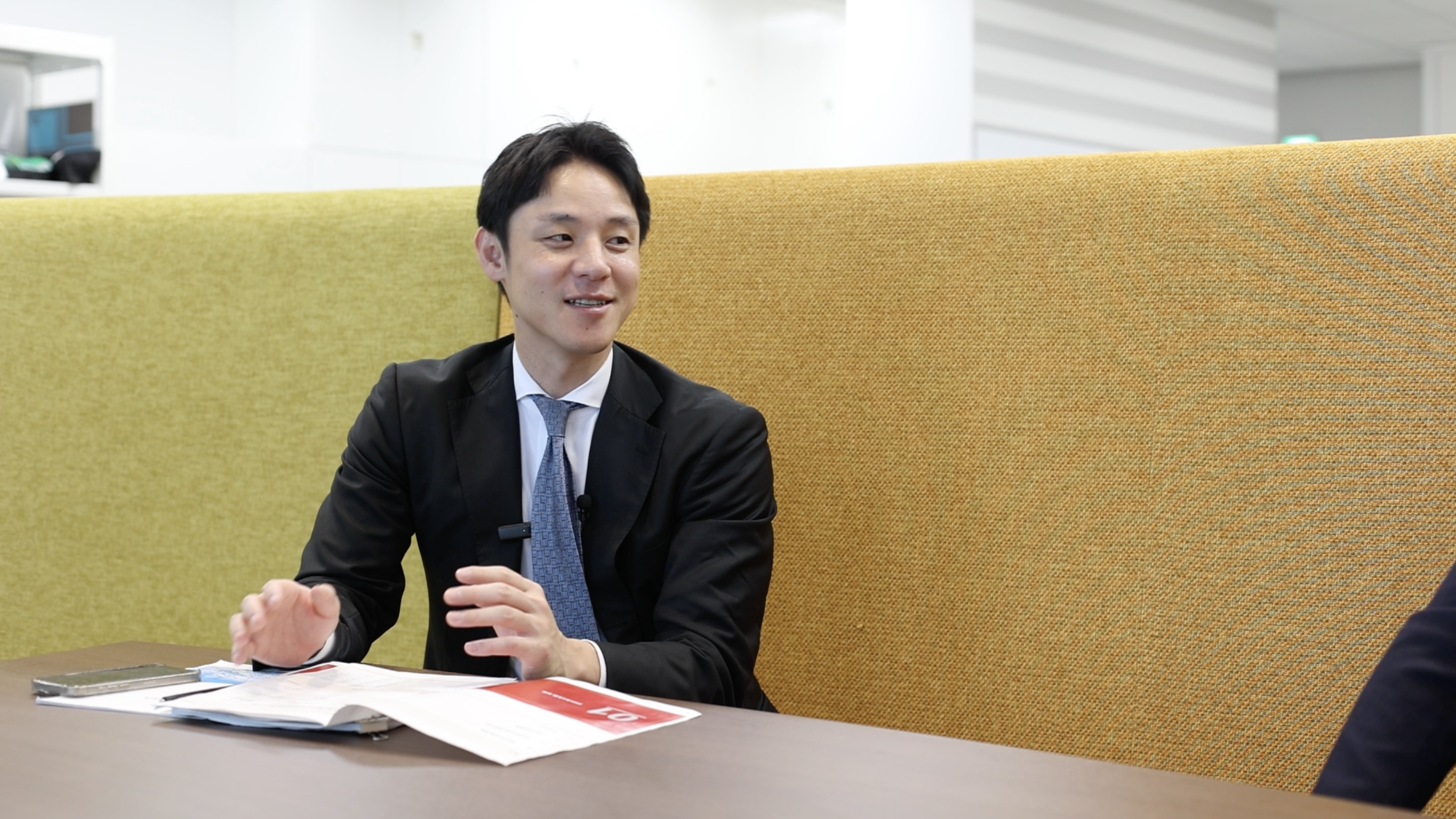
上田:まず「言語の壁」でいえば、間違いなく私が一番問題ですね(笑)。カタコトの英語になってしまって、自分でもよくコミュニケーションできたなと思います。また「文化の違い」もありますが、それよりも私は社員を大切にする思いや事業に対する思いを見ていました。そこで気持ちや方向性が同じかどうかを重要視していました。
そもそも、ハードルが高いと思われているクロスボーダーのM&Aだからこそ、私はチャンスがあると思っています。未知の世界だからこそ未開拓の魅力があるかもしれない。そこにワクワクするんです。
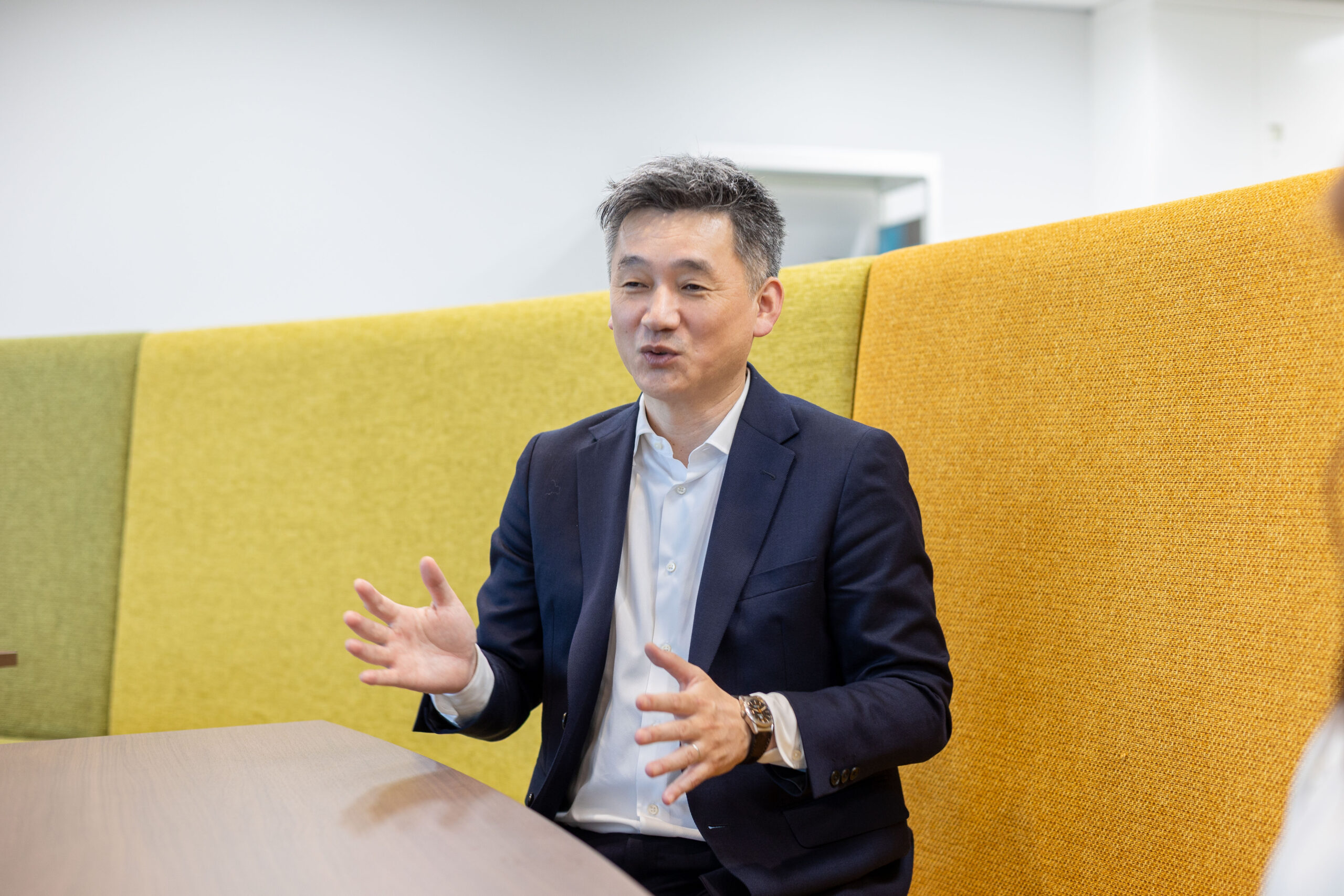
「PMI(経営統合)」についてですが、外部の有識者のアドバイスを受けながら、自社のメンバーとQool社のボードメンバーと月例ミーティングをしています。自動翻訳するサービスを利用しながら会話をしているので、コミュニケーションのストレスなく進めることができています。
もちろんM&A自体が初めてで、しかも海外ということもあり、不安もありました。しかし、現地で動いてくれる人材が必要だという話を社内でしたら、ある社員が「僕が行きたいです」と手を挙げてくれたんです。今も現地のメンバーと一緒に頑張ってくれています。
また、M&A後にQool社の社員一人ひとりと1on1で面談もしました。通訳を通して、「一緒に未来をつくっていこう」と直接伝えたかったんです。おかげで「安心した」と言ってくれた社員も多くて、信頼関係の土台をつくるうえでとても大きな意味があったと思います。
竹葉:それは素晴らしいことですね。それでは、今後海外M&Aを検討している企業に向けて、なにかメッセージをお願いします。
上田:やはりクロスボーダーのM&Aはハードルが高いと感じる方も多いと思います。でも実はそんなことないと思います。自社の立ち位置や目指す方向を明確にし、経済も市場も人口も拡大していく方向の波に乗ることで、新たな世界が開けてくると思います。
ASNOVAも、ここ3年間が勝負です。ASEANで経験値を積みながら成長を続けていきたいですね。重要なのは、信頼と覚悟です。数字を見て、共感できる相手を見つけたら、あとは決断するしかない。1社やれば、見える世界が変わります。そして私たちASNOVAが目指す「循環型ビジネスのエクセレントカンパニー」として、一歩ずつ成長していきたいと思います。
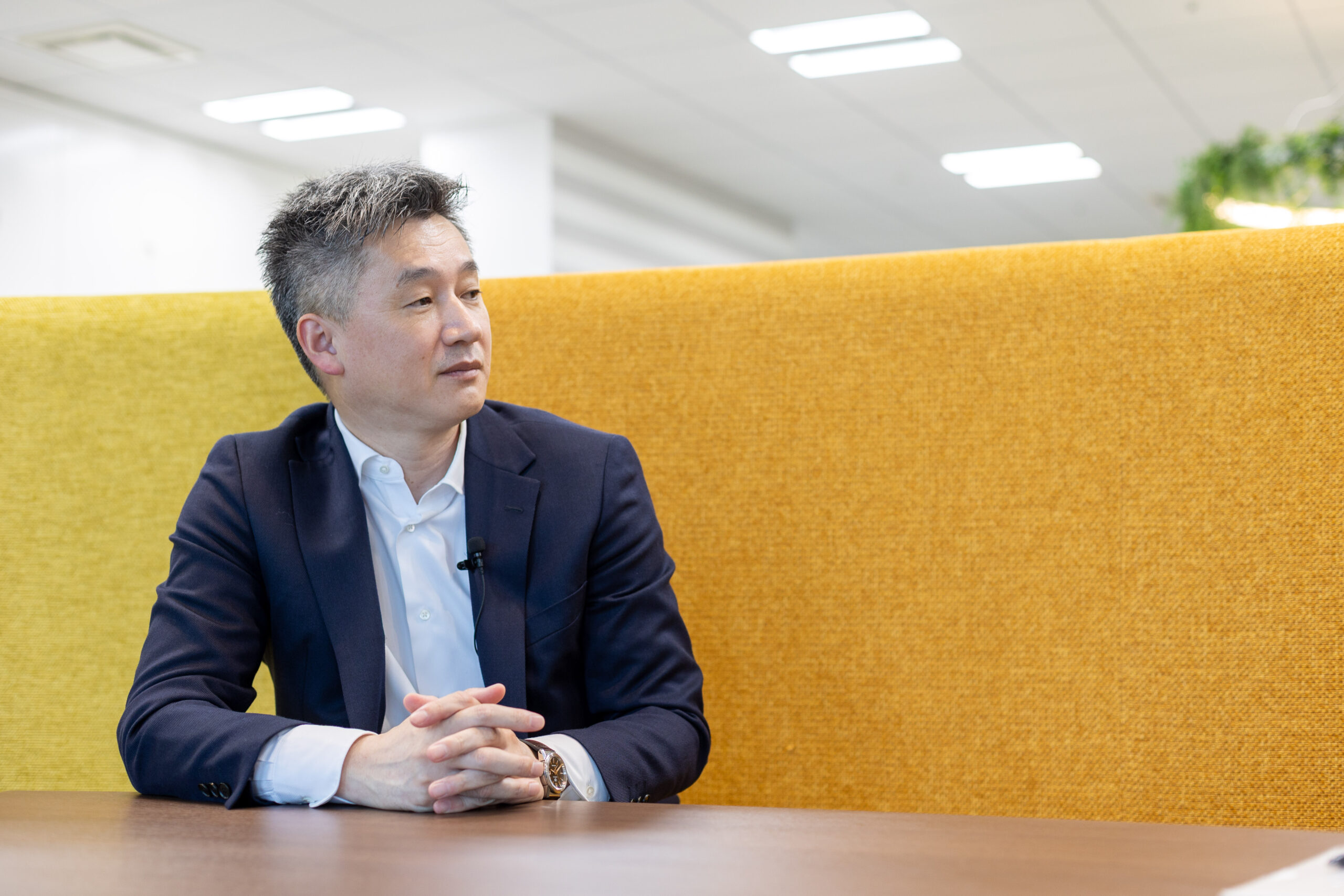
本記事に関連するインタビューの様子を、日本M&Aセンター公式YouTubeチャンネルでご覧いただけます。
INDEX






